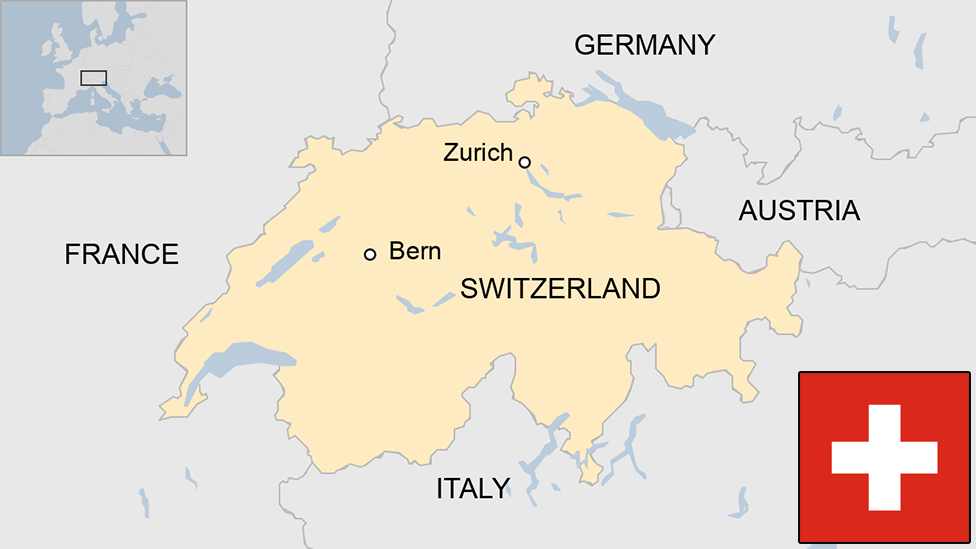Swiss voters ponder axing TV licence
- Published
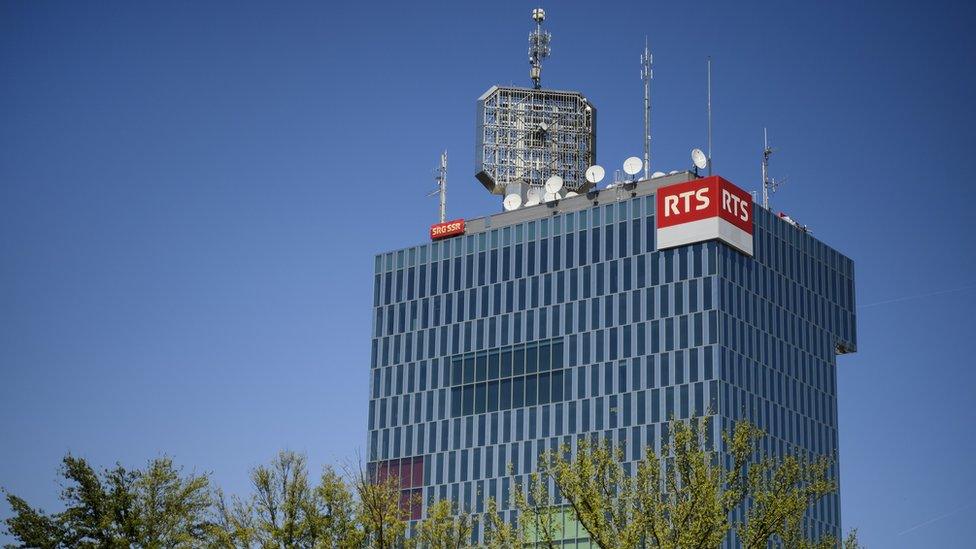
The SBC offers programming in all four Switzerland's languages - RTS is its service in French
Voters in Switzerland will go to the polls on Sunday to decide whether to abolish the mandatory licence fee for public broadcasting.
At the moment each household pays 451 Swiss francs a year ($480; £348) to receive television and radio. Additional funding comes from a limited amount of advertising.
The public broadcaster, the Swiss Broadcasting Corporation (SBC), offers countrywide programming in all four national languages (German, French, Italian, and Romantsch) as well as a number of local television and radio stations.
Supporters of keeping the fee say it is essential that a small country like Switzerland, population just 8.4 million, has a national broadcaster which reflects its cultural and linguistic diversity.
But those who want to abolish it argue that too many citizens are being forced to pay for too many programmes they do not watch.
Freedom of choice
Florian Maier, a key figure in the campaign against the fee, believes that getting rid of it will allow people freedom of choice.
"I think people should choose on their own how they spend their money," he said.
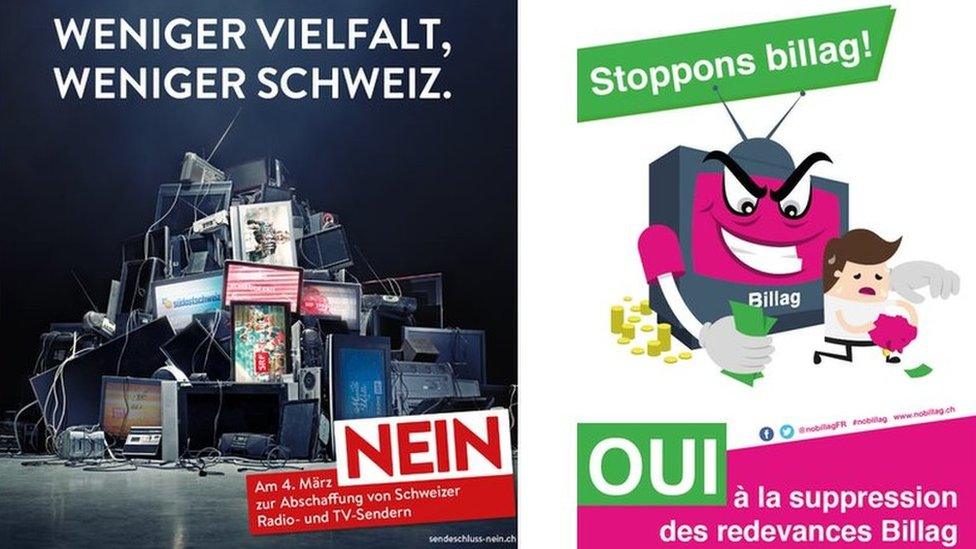
"Less variety, less Switzerland" and "Stop the licence fee!" - posters used in the referendum campaign
"It's giving people freedom. Freedom is when you aren't forced by anyone so there is no coercion of any kind. You know what you pay for."
Other opponents of the licence fee argue that the SBC - whose structure was originally modelled on that of the BBC - has become bloated and inefficient.
The three main television channels (German, French, and Italian) each have their own newsrooms, each send foreign correspondents to the world's major capitals.
There are also websites, and local radio stations in many Swiss towns and cities. Far more than a public broadcaster should have, the abolitionists argue, and so extensive that private media is being stifled.
Death to diversity
Supporters of the licence fee see things rather differently. Diego Yanez, a long-time journalist with Swiss-German language television and now director of Switzerland's school of journalism in Lucerne, sees the public broadcaster as an integral part of Switzerland itself.
"The Swiss are very proud to be a country with four languages," he said.
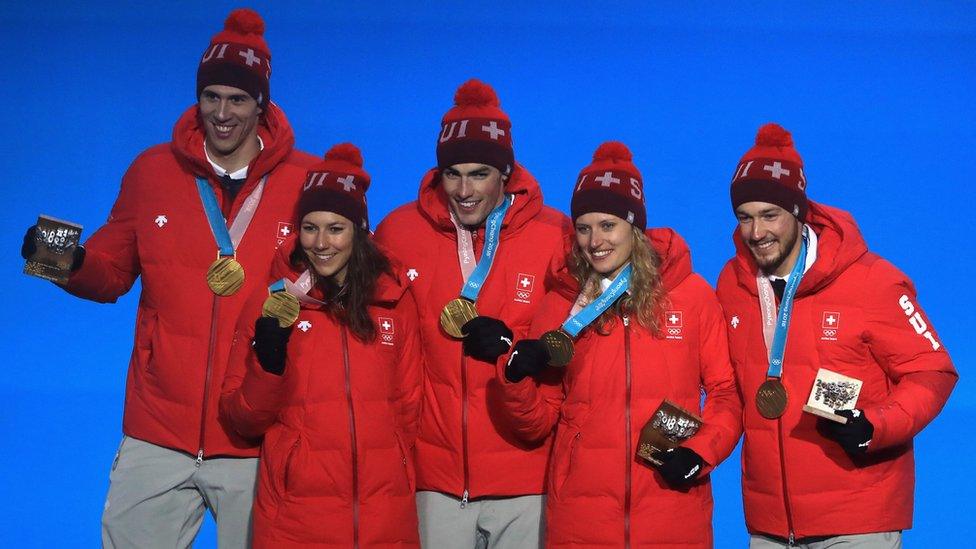
SBC's coverage of the Winter Olympics may influence voters to keep the TV licence
"There is no culture base which is common, so you have to create other common bases, and one of those bases is a public radio and television which is working all over the country for all parts of it, for all cultures of it. This is a part of how Switzerland has become a very effective and a very strong country."
Ending the licence fee may not mean the end of SBC altogether, but for Switzerland's tiny Romantsch programmes, for the Swiss Italian and some of the Swiss French output, there are not enough viewers or listeners to cover the costs.
Without cross subsidies from Switzerland's larger German region, television and radio in the smaller Swiss languages would struggle.
Read more about Switzerland
But would that be such a tragedy, since Switzerland benefits from receiving television and radio from its neighbours Germany, France, Italy, and Austria? Foreign broadcasters already enjoy a significant part of the Swiss media market; that would increase if the licence fee disappeared.
But some voters fear that high-cost, uniquely Swiss programmes such as the live broadcast of the opening of the Gotthard Tunnel, the annual Lauberhorn ski race or even live coverage of Swiss football might disappear too.
Who, Swiss minister for Communications Doris Leuthard has asked, would invest in those things other than Switzerland's own public broadcaster?
Future fears
The Swiss government and parliament have both advised voters to keep the licence fee. Perhaps surprisingly, so too have Switzerland's print media houses and its publishers' association.
The thinking seems to be that the loss of the biggest player would be dangerous to the entire Swiss media landscape.
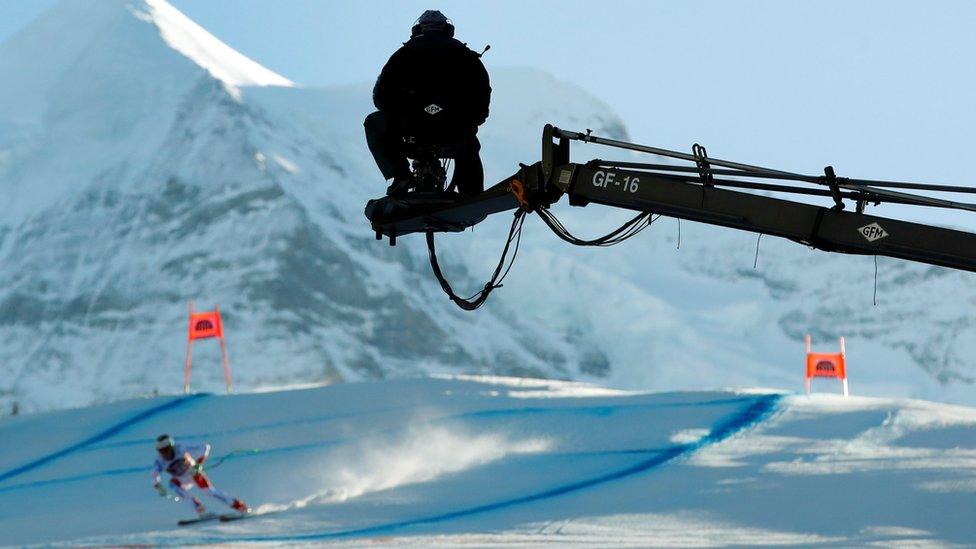
Some voters fear events like the Lauberhorn ski race could disappear from their TVs
There is also a suspicion in some quarters that the one political party which backs abolishing the licence fee, the right-wing Swiss People's Party, may have long-term designs on the media.
Its wealthy leader, Christoph Blocher, has his own private television station and has recently been buying newspapers as well, acquiring 25 free local papers last year alone.
Students at Switzerland's school of journalism are, naturally, impatient to see what Sunday's vote will bring, not least because a number of Swiss newspapers have closed in recent years and SBC is by far the largest employer in their chosen profession.
"I do worry about the future," admits Annina Reusser. "Already it's hard to have the funding to do our job well, so the Swiss TV and radio, if they are missing, it would rather impoverish our media diversity."
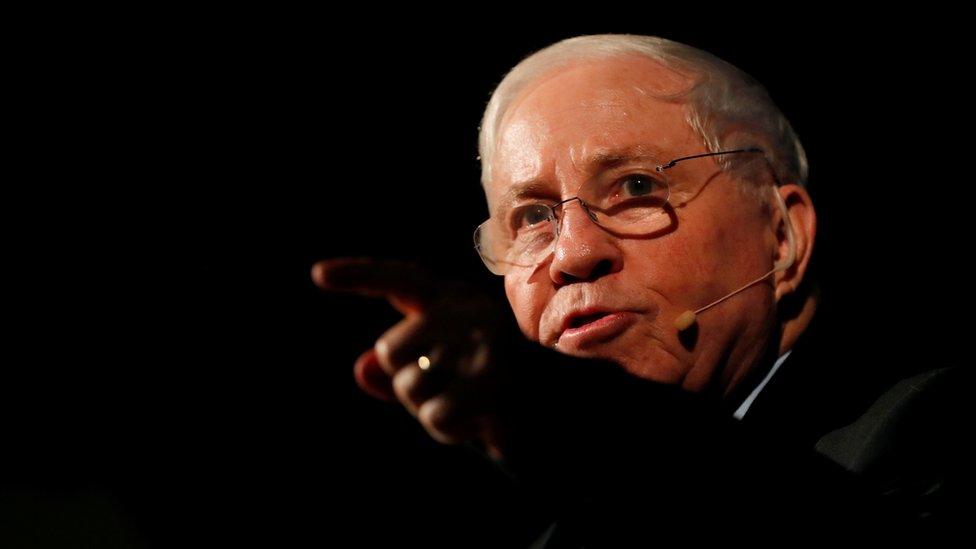
Swiss People's Party Christoph Blocher has his own TV station and has been buying up newspapers
Jan Schlegel adds: "There is a big change coming... My way is going to be hard, but I think there will be a way to stay in journalism because the request for good journalism will be there always. In which form is another question."
Latest opinion polls, fuelled perhaps by the loving attention SBC gave to Switzerland's athletes at the Winter Olympics, suggest voters are tending towards keeping the licence fee.
But whichever way the vote goes, there will be changes at Switzerland's public broadcaster. Even before the campaign began SBC indicated it was ready to rethink, and reduce, the fee.
It may escape execution, but it will certainly have to go on a diet.
- Published24 January 2018
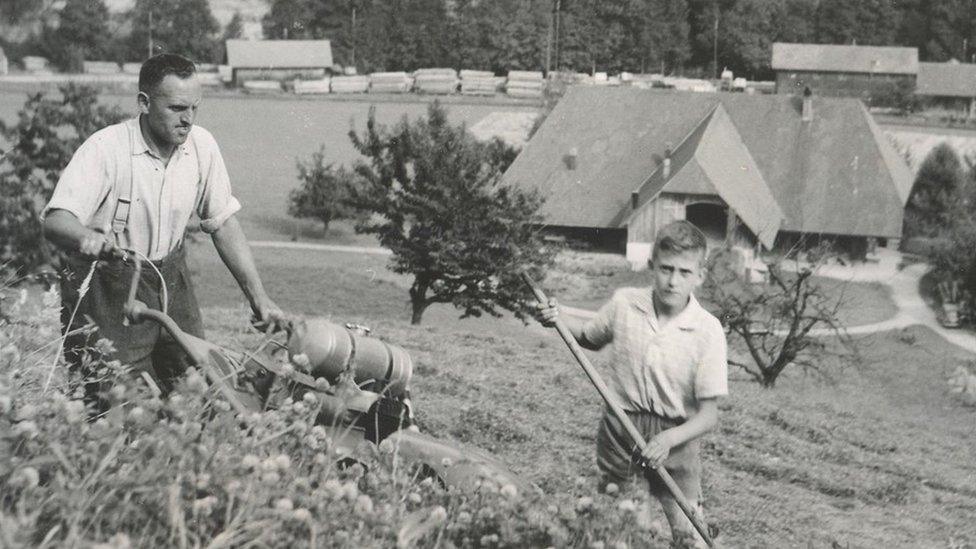
- Published4 January 2018
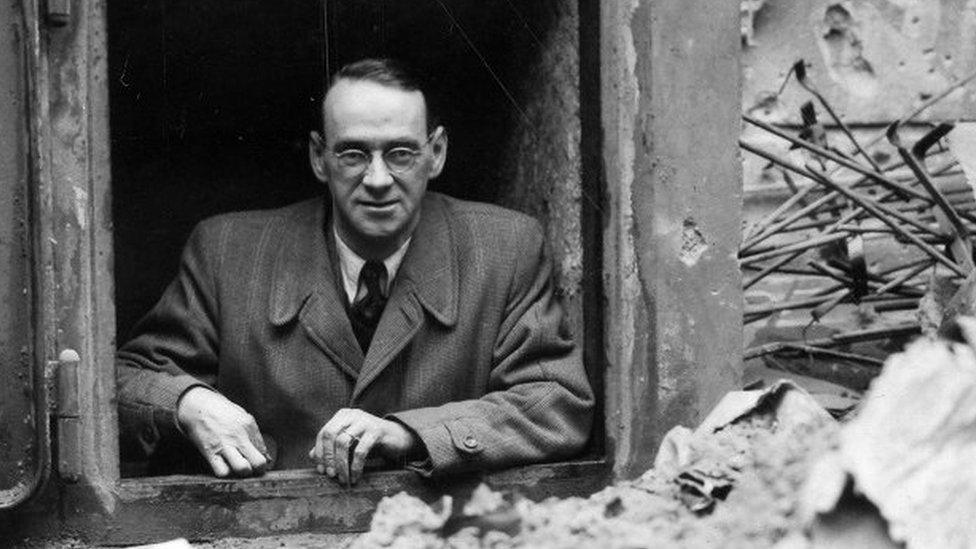
- Published30 November 2017

- Published19 June 2023
